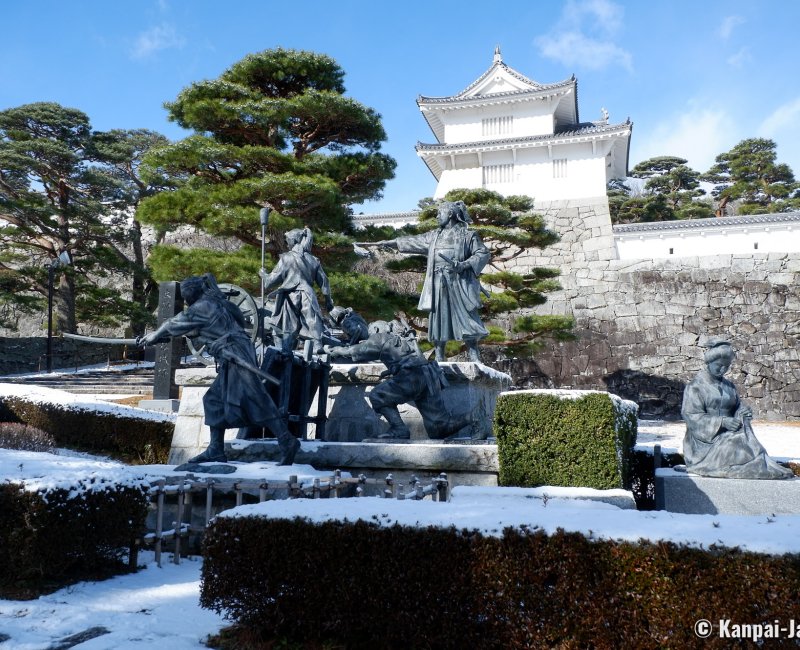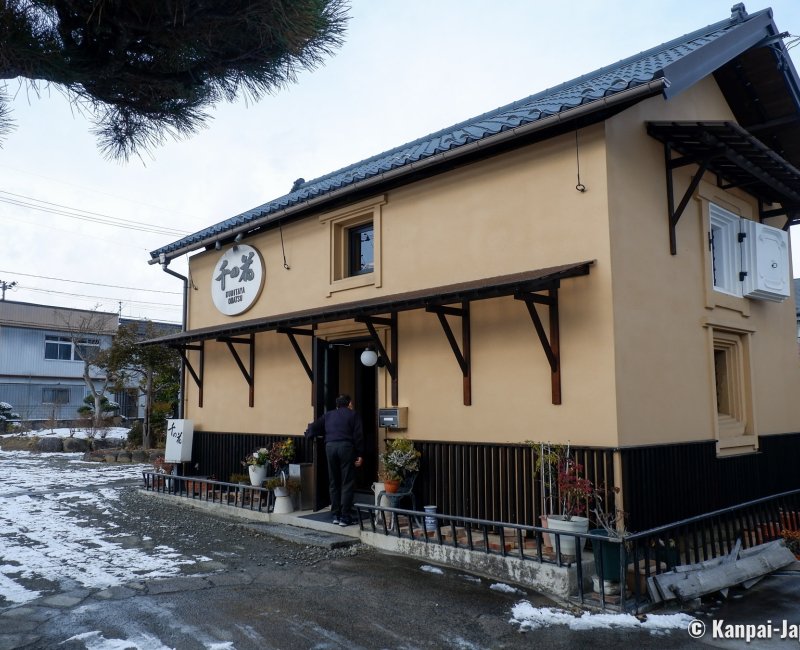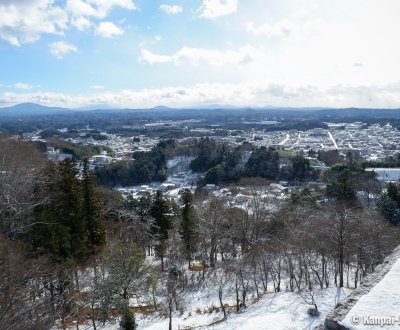Nihonmatsu
The Small Feudal City in Fukushima
Nihonmatsu is a small town located at the foot of Mount Adara, in the north of Fukushima prefecture in the Tohoku area. Authentic and off the beaten touristic tracks, this former feudal city will delight amateurs of history and gastronomy.
Located 25 kilometers to the south of Fukushima prefecture’s capital of and easily accessible by train 🚅 from Tokyo, Nihonmatsu is primarily renowned for its old nihonshu (Japanese sake 🍶) breweries still in business today, and especially the iconic Daishichi of which we recommend doing the guided tour and tasting.
Among the various events occurring in the city, a lantern 🏮 festival called Nihonmatsu Chouchin Matsuri (二本松提灯祭り) is held over 3 days in early October. This over 300-years old celebration is the occasion for a beautiful parade of floats decorated with lanterns.
At the exit of the JR station, a few minutes’ walk leads to the historical downtown offering a discovery of Nihonmatsu’s history and crafts.
Walking in Kasumigajo Castle Park
Begin with Kasumiga-jo Castle, built from the mid-15th century by the Hatakeyama clan at the top of a hill. The feudal construction overlooking the city was then home to the ruling families that succeded each others during several centuries, namely the Nihonmatsu, Date, Gamo, Uesugi, Kato and Niwa clans.
The Boshin War (1868 - 1869) marks the end of the Edo period and of the rule of the Tokugawa shogunate to which Kasumigajo was affiliated. Nihonmatsu was thus attacked by the new Meiji imperial army and its castle was partially destroyed. In 1872, the newly established imperial power ordered the dismantlement of the last remaining buildings.

Nowadays, Kasumigajo Castle Park offers an historical walk in a hilly environment. At the entrance, the group of statues Nihonmatsu Shonentai is a homage to the sixty young boys, aged 12 to 17 years old, who were injured or killed during the feudal site defense operations. The path continues along the original fortified walls, and then through the restored Minowa and Tsukeyagura gates to reach the top of the park. In the past, the cherry trees 🌸 surrounded the keep, and now they still bloom in spring and attract the locals to celebrate ohanami. The unobstructed view on the city surrounded by the Adatara mountain range is worth the climb. Despite being in ruins, the site is listed in the Top 100 Japanese Castles 🏯.
In a bend of the path meandering on the way down, one can especially see:
- A Japanese red pine tree, not very tall but wide and plucked in an original umbrella shape. It is nicknamed Kasamatsu, that is to say "umbrella pine" and is more than 350 years old
- Senshintei tea house, that hosted lords and warriors
- The small Niwarei-jinja shrine, and lastly,
- Near the park’s exit, a huge rock on which were engraved advice intended to the retainers of the 5th Niwa lord, Takahiro (1728 - 1745) that still echoes nowadays.
Gourmet break at Kura Café Sen no Hana
For lunch, go to the Takeda artisans district to find restaurant Kura Café Sen no Hana, which as hinted by its name, is installed within a former traditional warehouse (kura).
You will be kindly welcomed, and the friendly staff knows how to put the clients at ease. In this small joint, the food is simple, local and delicious, especially the zaku-zaku soup for example. Some of the ingredients are home made, as the restaurant is in fact on the site of the Kunitaya workshop, founded in 1777 and specialized in the production of fermented food: koji, miso paste and shoyu soy sauce. You can then buy your own supply after lunch.

Washi paper workshop at the Denshoukan
Driving travelers can stop at Michi no Eki Adachi (道の駅 安達), the freeway rest area gathering several shops selling souvenirs from Nihonmatsu, such as the stationery shop Denshoukan. Beside the shopping opportunity, it is possible to take part in a Washi traditional paper making workshop. You can then make an original small object to bring back home, ranging from a postcard to a Washi paper lantern.
For other excursions in Nihonmatsu downtown’s close surroundings, the beautiful hiking trails around Mount Adatara are worth mentioning. The volcanic area is interesting for seasoned walkers with a good preparation beforehand. At the foot of the mountains, the natural hot baths of Dake Onsen ♨️ thermal resort offer a pleasant dip at the end of a sightseeing day.

